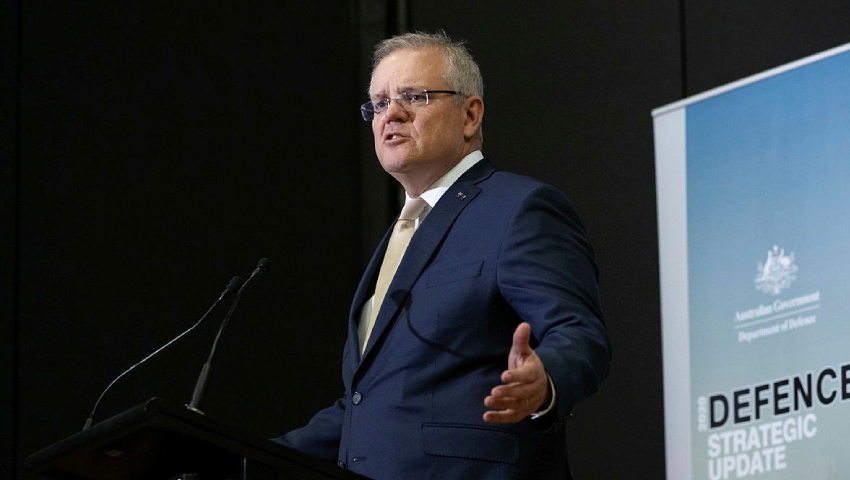The Commonwealth government should consider bolstering investment in “grey zone” and asymmetric warfare capability, according to recommendations from a new parliamentary committee report.
To continue reading the rest of this article, please log in.
Create free account to get unlimited news articles and more!
The Joint Standing Committee on Foreign Affairs, Defence and Trade has handed down recommendations from a review of the Department of Defence Annual Report 2019-20.
The inquiry focused on a number of key components of Australia’s national security strategy: intelligence, surveillance and reconnaissance (ISR); cyber warfare; Defence estate in the north and north-west; Defence workforce; Defence science and technology; and strategic fuel security.
Among the core recommendations of the committee are reviews into the size of the ADF and a greater shift towards an “asymmetric” approach to national security over the coming decades – across both Defence and the broader national security network.
This includes renewed consideration of shared civil-military space capabilities, joint civil-military cyber capabilities and new approaches to future fuel and energy security measures.
Specifically, the committee has issued the following six recommendations, calling for the government to:
- Review the size of the ADF in order to ensure a more sustainable and credible conventional force is available for future military operations, particularly sustained operations.
- Lead a shift in strategic thinking, within both government and the ADF, towards resourcing and shaping the ADF not only as a highly capable conventional force, but also as a disproportionately potent force in grey-zone and asymmetric capabilities.
- Increase investment into an Australian sustainable aviation fuel industry through funding mechanisms such as ARENA.
- Explore mechanisms such as AUKUS, to collaborate with the US and UK militaries in the development of drop-in biofuels for military use to ensure that standards and certifications for Defence use are jointly developed should a contingency require the use of alternative aviation fuels.
- “As a matter of urgency”, appoint a task force, including Defence, industry and independent experts, to critically assess Australia’s current fuel security in light of the Strategic Update 2020 and over the longer term given changing geo-strategic circumstances.
- “As a matter of priority”, adopt an approach to facilitate more effective parliamentary engagement with Defence, and establish a new parliamentary committee; or enhance the role of the Defence sub-committee of the JSCFADT, with an exclusive focus on Defence and with effective powers of oversight along the lines of the Parliamentary Joint Committee on Intelligence and Security (PJCIS).
“The global geostrategic environment is changing at a rate and on a scale much greater than was anticipated towards the end of the last decade,” committee chair Senator David Fawcett said.
“Military modernisation in the Indo-Pacific, particularly in ‘grey-zone’ capabilities and tactics, has added a layer of complexity to Australia’s strategic challenges which must be met in an equally high-paced and agile manner if we are to maintain a credible defensive deterrent.”
The report has been tabled in the House of Representatives.
[Related: Committee publishes findings into review of intelligence agencies]

 Login
Login







